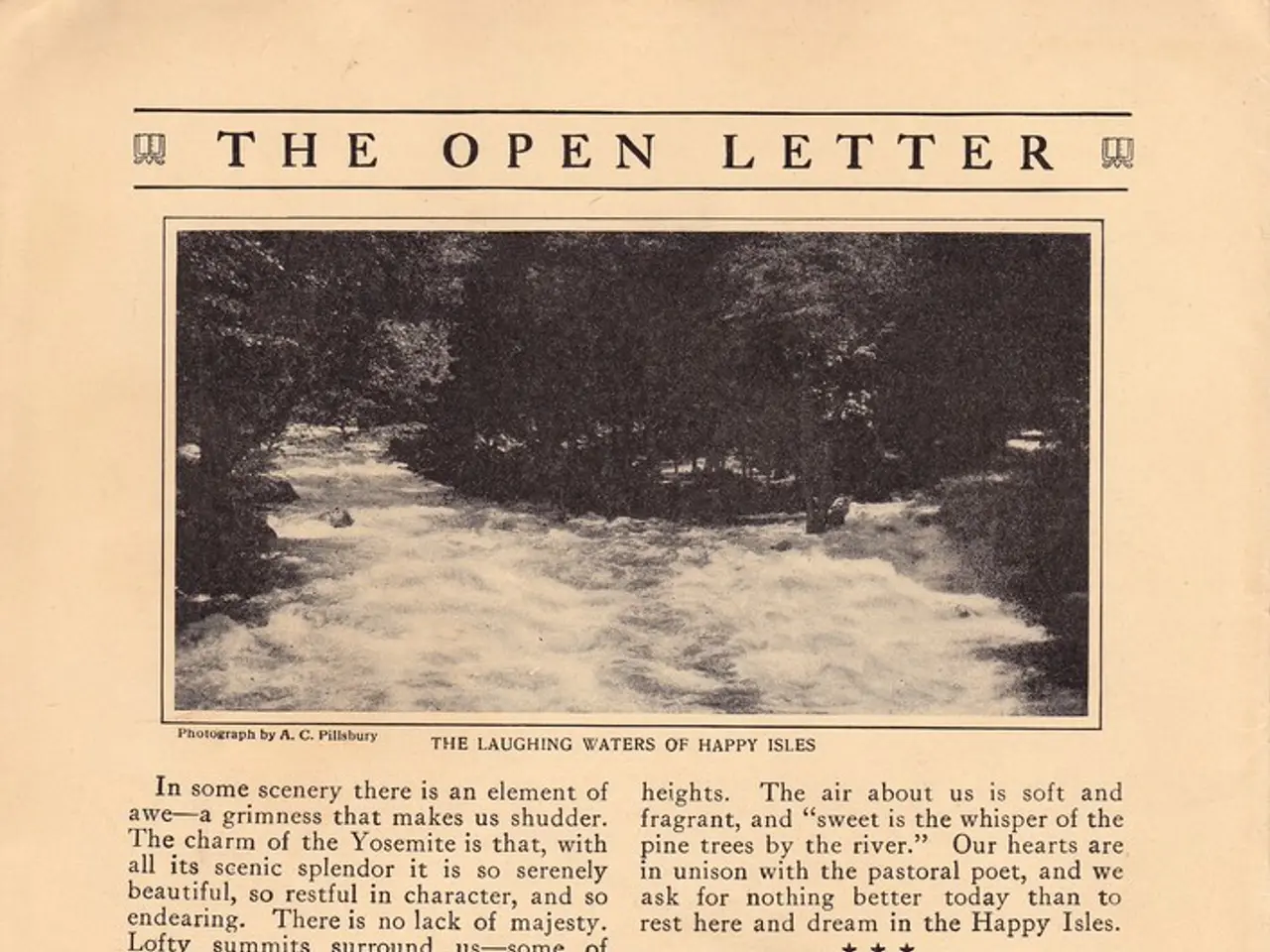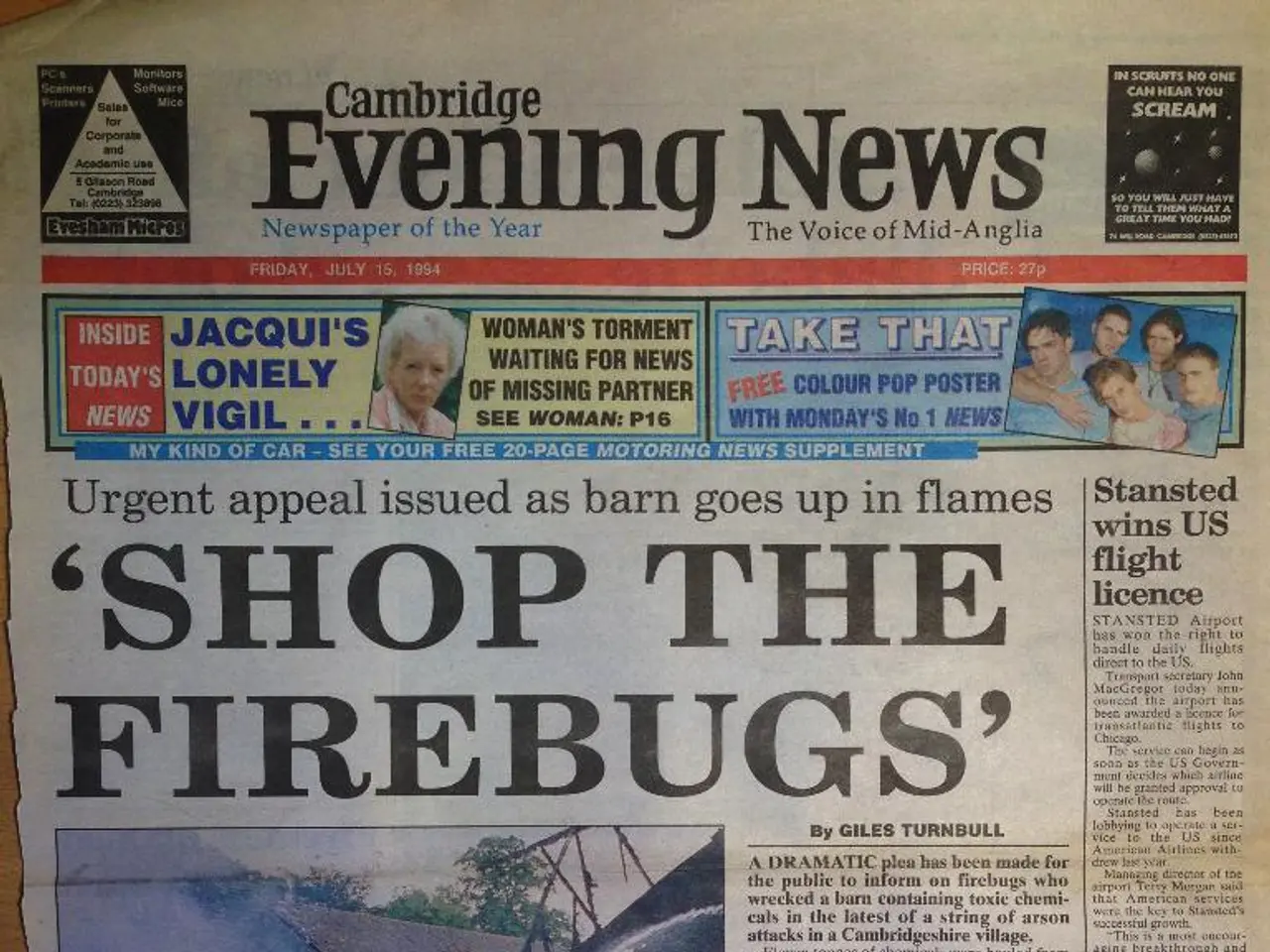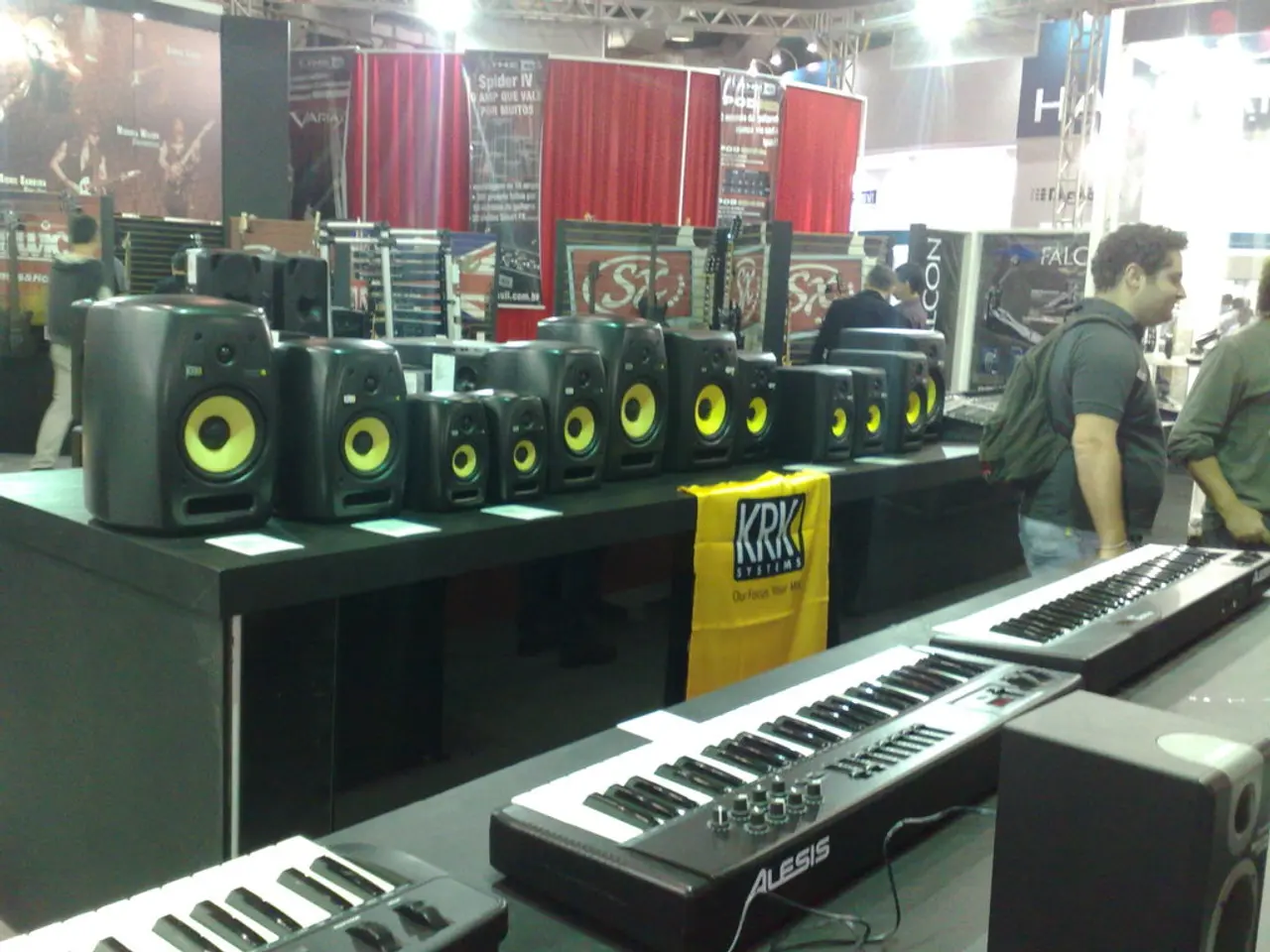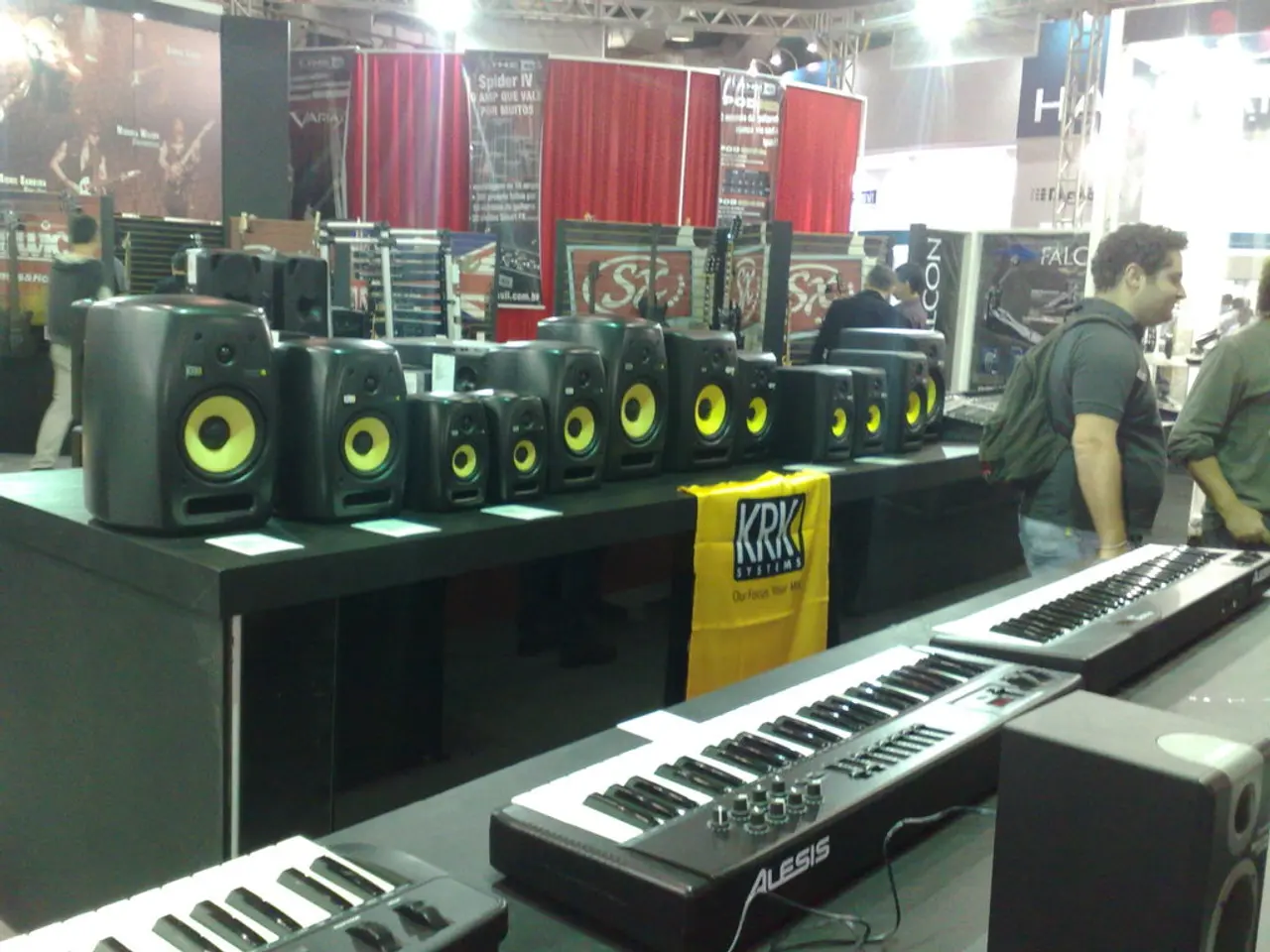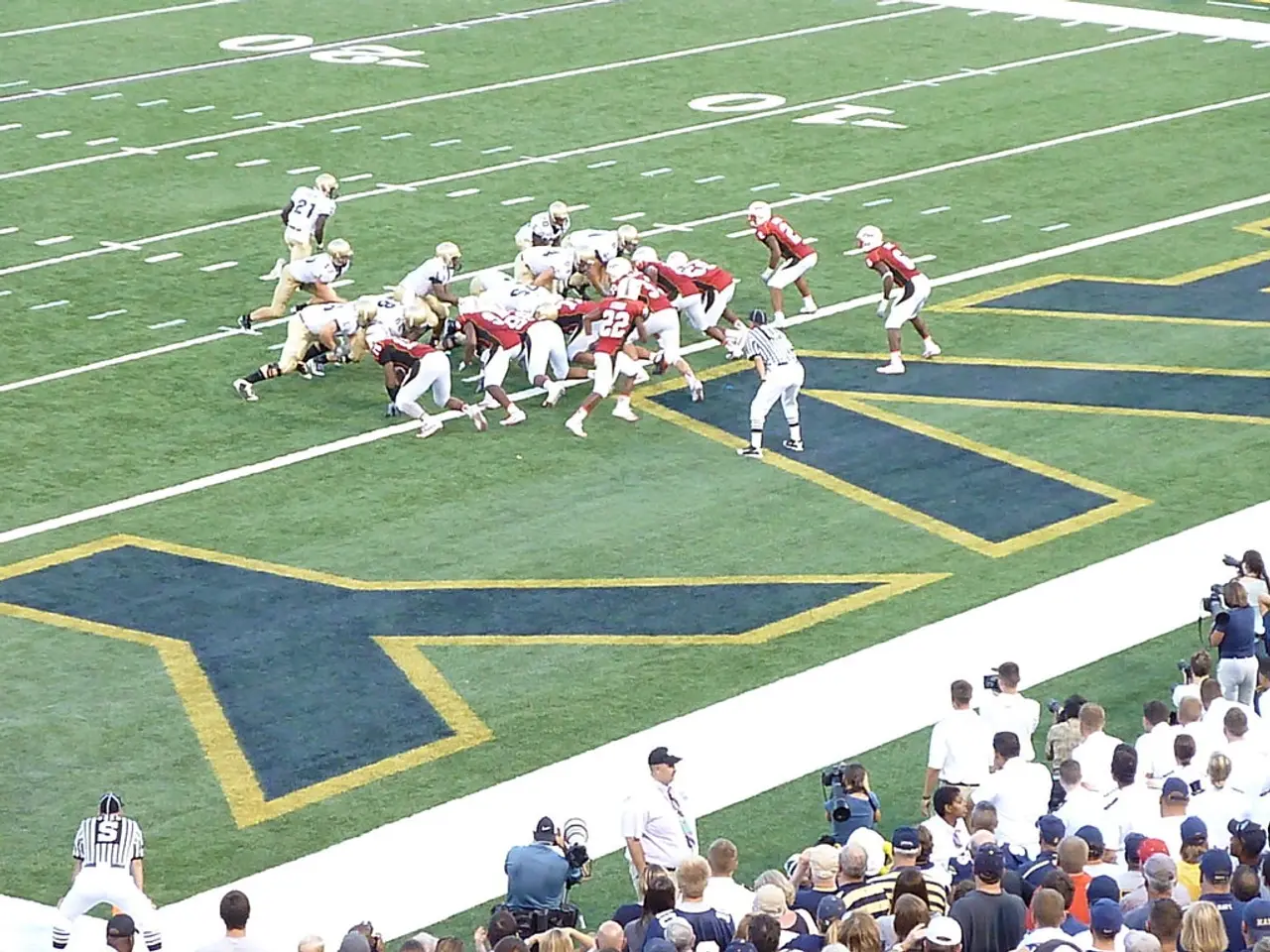Hamburg drifting towards state collapse, according to AfD perspective. - Hamburg's political landscape veering towards a state of collapse, as observed by the Alternative for Germany (AfD) party.
In a recent Citizens' Assembly organised by the Alternative for Germany (AfD) party, the party presented its perspective on the rising crime situation in Hamburg, linking it to immigration and advocating for tougher law enforcement measures. However, Hamburg's Senator for the Interior, Andy Grote, strongly countered these claims, arguing that the AfD's portrayal of the crime situation is exaggerated and politically motivated.
The AfD positioned itself as a defender of law and order, emphasising the need for strong measures to combat crime. Senator Grote, on the other hand, emphasised the city's commitment to effective policing and crime prevention policies. He rejected the AfD's narrative that framed immigrants or minorities as primarily responsible for crime in Hamburg, stating that it is a false narrative.
Grote accused the AfD of using crime statistics and public fears as a tool for right-wing populist agitation, rather than addressing the actual challenges in a constructive way. He also addressed the AfD directly, stating that not all crimes are committed by "southerners," a reference to the AfD's perceived narrative.
The red-green coalition and the Left agreed with Grote's statement, while the Christian Democratic Union (CDU) did not support Grote's engagement critique but focused on the AfD's actions and speech. The CDU's interior expert, Dennis Gladiator, accused the AfD of wanting a failed state and labelled their speech as irresponsible, stating that they are part of the problem, not the solution.
In contrast to the AfD's claims, Grote acknowledged a series of serious crimes in recent months in Hamburg but noted that not all crimes can be prevented. He also highlighted that the number of criminal offences in Hamburg decreased in the first six months of the current year compared to the previous year's first half, with approximately 9,500 fewer crimes reported. Around 110,000 crimes were reported from January to June in Hamburg, and the reported violent crime decreased by 6.9 percent or about 300 to just under 4,200 cases.
The AfD faction leader, Dirk Nockemann, initiated an urgent hour in the Hamburg Citizens' Assembly and cited violent acts of recent weeks as evidence that Hamburg is on the path to a failed state. However, these claims were met with criticism from various political parties, who accused the AfD of fuelling xenophobia and extremist politics.
This clash reflects broader political tensions in Germany about how to address security concerns without fueling xenophobia or extremist politics, especially in the context of the AfD's classification by the Federal Office for the Protection of the Constitution as a right-wing extremist organization in 2025. The debate underscores the importance of constructive and evidence-based discussions on public security issues in the city.
The AfD party, in the recently conducted Citizens' Assembly, emphasized their stance on law and order by advocating tougher policy-and-legislation related to crime, aligning themselves with right-wing politics. In response, Senator Grote underscored Hamburg's commitment to policy-and-legislation that promotes effective policing and crime prevention, rejecting the AfD's general-news framing of immigrants or minorities as the primary culprits of crime.
The red-green coalition, the Left, and Senator Grote collectively denounced the AfD for exploiting crime statistics and public fears for right-wing populist agitation, while the CDU criticized the AfD's actions and speech for perpetuating irresponsible ideas about creating a failed state. The ongoing debate highlights the politically charged nature of crime-and-justice discussions in Hamburg, emphasizing the need for constructive and evidence-based policy-making to address security concerns without fueling xenophobia or extremist politics.

